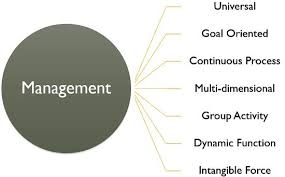Effective Software Project Management Strategies in Software Engineering
Software Project Management in Software Engineering
Software project management is a crucial aspect of software engineering that focuses on planning, organizing, and executing software development projects. It involves applying specific processes, methods, and tools to ensure the successful completion of a software project within the defined constraints of scope, time, cost, and quality.
Key Components of Software Project Management:
Planning: This phase involves defining the project scope, objectives, deliverables, and resources required. A detailed project plan is created to outline tasks, milestones, timelines, and dependencies.
Scheduling: Scheduling involves creating a timeline for project activities and allocating resources effectively to meet deadlines. Tools like Gantt charts are commonly used to visualize project schedules.
Budgeting: Budgeting involves estimating costs associated with the project, including labor costs, equipment costs, software licenses, and other expenses. Effective budget management is essential to prevent cost overruns.
Risk Management: Identifying potential risks that could impact the project’s success and developing strategies to mitigate or respond to these risks is a critical aspect of software project management.
Communication: Effective communication among team members, stakeholders, and clients is vital for ensuring everyone is aligned with project goals and progress updates are shared regularly.
Importance of Software Project Management:
Effective software project management helps organizations achieve their software development goals efficiently by improving collaboration among team members, reducing risks of project failure, optimizing resource allocation, and ensuring timely delivery of high-quality software products.
Conclusion:
In conclusion, software project management plays a crucial role in the success of software engineering projects by providing a structured approach to planning, executing, monitoring progress, and delivering results within specified constraints. By implementing best practices in software project management, organizations can increase their chances of delivering successful software solutions that meet user requirements and business objectives.
Essential FAQs on Software Project Management in Software Engineering
- What is software project management?
- Why is software project management important in software engineering?
- What are the key components of software project management?
- How does scheduling impact software project management?
- What tools are commonly used in software project management?
- How do you manage risks in software project management?
- What role does communication play in software project management?
- How can effective budgeting contribute to the success of a software project?
What is software project management?
Software project management in software engineering refers to the discipline of planning, organizing, and overseeing the development of software projects from inception to completion. It involves defining project goals, creating detailed plans, allocating resources effectively, managing risks, monitoring progress, and ensuring that the project is delivered on time and within budget. Software project management is essential for coordinating the efforts of team members, stakeholders, and clients to achieve a common objective and deliver high-quality software solutions that meet user requirements.
Why is software project management important in software engineering?
Software project management is essential in software engineering for several reasons. Firstly, it helps in defining clear project objectives, scope, and deliverables, ensuring that the team works towards a common goal. Secondly, effective project management facilitates proper planning and resource allocation, optimizing the use of time and budget. Additionally, it enables risk identification and mitigation strategies to be put in place, reducing the likelihood of project failures. Ultimately, software project management plays a vital role in ensuring that software development projects are completed successfully within set constraints while meeting quality standards and stakeholder expectations.
What are the key components of software project management?
One of the frequently asked questions in software project management in software engineering is about the key components of the discipline. The key components of software project management include planning, scheduling, budgeting, risk management, and communication. Planning involves defining project scope and objectives, while scheduling focuses on creating timelines and allocating resources efficiently. Budgeting entails estimating project costs, and risk management involves identifying and addressing potential risks. Effective communication ensures that all stakeholders are informed and aligned throughout the project lifecycle. These components are essential for successful software project management as they help streamline processes, manage resources effectively, and mitigate risks to achieve project goals.
How does scheduling impact software project management?
Scheduling plays a critical role in software project management as it directly influences the project’s timeline, resource allocation, and overall success. Effective scheduling helps in setting realistic deadlines for project milestones, ensuring that tasks are completed on time and within budget. By creating a well-defined schedule, project managers can identify potential bottlenecks, allocate resources efficiently, and track progress against set timelines. Additionally, scheduling allows for better risk management by providing a clear roadmap for the project team to follow and adapt to changes as needed. Ultimately, the impact of scheduling on software project management is significant, as it helps in maintaining project momentum, meeting client expectations, and delivering high-quality software solutions.
What tools are commonly used in software project management?
In software project management within software engineering, various tools are commonly utilized to facilitate efficient project planning, collaboration, tracking, and communication. Some of the widely used tools include project management software such as Jira, Trello, and Asana for task management and progress tracking. Version control systems like Git help manage code changes and collaboration among developers. Communication tools like Slack and Microsoft Teams enable real-time communication among team members. Additionally, Gantt charts and Kanban boards are popular visualization tools that aid in scheduling tasks and monitoring project timelines. These tools play a vital role in streamlining project workflows, enhancing team productivity, and ensuring successful software project delivery.
How do you manage risks in software project management?
Managing risks in software project management is a critical aspect that involves identifying potential threats or uncertainties that could impact the project’s success and developing strategies to mitigate or address them effectively. To manage risks, project managers typically conduct risk assessments to identify and prioritize potential risks, create risk mitigation plans to reduce the likelihood or impact of identified risks, and establish contingency plans to address unforeseen events. Regular monitoring and communication about risks throughout the project lifecycle are essential to ensure timely responses and minimize negative impacts on project objectives. By proactively managing risks, software project teams can enhance their ability to deliver projects successfully within defined constraints.
What role does communication play in software project management?
Effective communication plays a pivotal role in software project management. Clear and consistent communication among team members, stakeholders, and clients is essential for ensuring that everyone is on the same page regarding project goals, requirements, progress, and challenges. Communication helps in aligning expectations, resolving conflicts, and fostering collaboration within the team. It also enables timely identification and mitigation of risks, facilitates decision-making processes, and ultimately contributes to the successful delivery of high-quality software products within the defined constraints of scope, time, cost, and quality. In essence, communication acts as a linchpin that holds together all aspects of software project management, ensuring transparency, accountability, and shared understanding throughout the project lifecycle.
How can effective budgeting contribute to the success of a software project?
Effective budgeting plays a key role in contributing to the success of a software project in software engineering. By accurately estimating and managing costs associated with the project, teams can ensure that financial resources are allocated efficiently and that the project stays within budget constraints. Effective budgeting allows for better resource planning, cost control, and risk management throughout the project lifecycle. It helps in preventing cost overruns, identifying potential cost-saving opportunities, and making informed decisions regarding investments in tools, technologies, and human resources. Ultimately, effective budgeting promotes financial transparency, accountability, and sustainability, which are essential for achieving project objectives on time and within scope.




